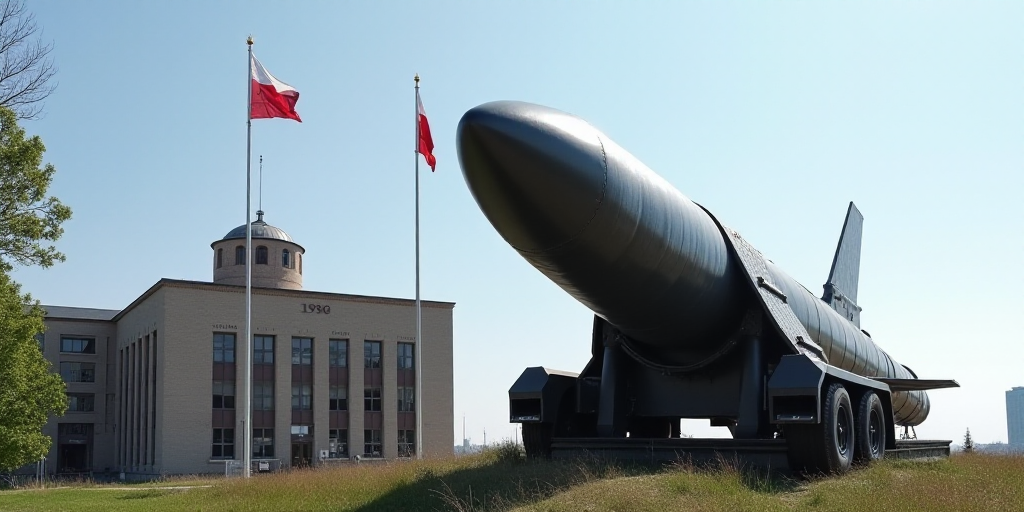Iran Defends Its Right to Civil Nuclear Program
Iran has asserted that there is currently no “plan” to restart nuclear negotiations with the United States, contradicting President Donald Trump’s recent statements following a ceasefire that ended 12 days of conflict between Tehran and Israel.
Scheduled Nuclear Talks Canceled Due to Conflict
The sixth round of dialogues on Iran’s nuclear program, set for June 15 with Oman as the mediator, was canceled due to the conflict that erupted two days prior when Israel attacked Iran.
Iran’s Foreign Minister Dismisses Speculation
On Thursday, Iran’s Foreign Minister Abbas Araqchi stated on public television that speculations about resuming negotiations should not be taken seriously. “There is still no plan to start negotiations,” he added.
Earlier, Trump had claimed that they would “speak next week with Iran” and even hinted at the possibility of “signing an agreement” regarding Tehran’s nuclear program.
Iran Defends Civilian Nuclear Program
The Islamic Republic of Iran maintains its right to develop a civilian nuclear program and denies any intention of acquiring nuclear weapons, as Israel alleged to justify its June 13 offensive.
The consequences of repeated Israeli attacks and U.S. bombardments on Iran’s nuclear facilities are now under discussion.
Jamenei Claims Trump Exaggerated Attack Impact
In his first statement since the ceasefire began, Iran’s Supreme Leader Ayatollah Ali Jamenei asserted that Trump “exaggerated” the impact of his attacks on Iran’s Fordo, Natanz, and Isfahan nuclear power plants.
Jamenei estimated that the U.S. “gained nothing” from its bombardments and triumphantly celebrated Iran’s “victory.”
He also stated that they had given a “powerful slap” to the U.S. and nearly caused Israel’s collapse due to attacks launched from Tehran.
The White House accused Jamenei of attempting to “save face.” “We saw the ayatollah’s video, and when dealing with a totalitarian regime, one must save face,” said White House spokesperson Karoline Leavitt.
However, later on, Foreign Minister Araqchi described the damage to Iran’s nuclear facilities as “important.” He also mentioned that experts were conducting a detailed assessment of the damage and that Iran’s government would discuss how to demand compensation for these incidents.
Trump claimed that the bombed facilities were “completely destroyed,” and Iran couldn’t preemptively evacuate the uranium reserves they stored.
“It would have taken too long, it’s too dangerous, heavy, and difficult to move!” Trump stated on his Truth Social platform.
Nevertheless, some experts believe that Iran could have moved part of its 400 kilograms of highly enriched uranium before the attack and hidden it somewhere in its vast territory.
According to a classified U.S. document, published by CNN, the attack did not destroy crucial components of Iran’s nuclear program, which was only delayed by a few months and not decades as Trump claimed.
The White House acknowledged the document’s authenticity but deemed it “completely incorrect.”
Defense Secretary Pete Hegseth insisted on Thursday that the operation was a “historic success” and criticized the media for questioning it.
“President Trump has created conditions to end the war,” he emphasized during a press conference.
Potential End of Iran’s Cooperation with the IAEA
In response to U.S. attacks, Iran fired missiles at Israel and a U.S. base in Qatar before the ceasefire took effect.
According to Jamenei, Trump aims to downplay the impact of Iran’s attack on Al Udeid Air Base, the largest U.S. military installation in the Middle East.
Iran’s nuclear program was subject to multiple rounds of negotiations between the U.S. and Iran, beginning in April under Oman’s mediation but suspended due to Israel’s offensive.
Prior to the U.S. intervention, Israel had launched hundreds of attacks on these facilities and assassinated some of the scientists responsible for the nuclear program.
The International Atomic Energy Agency (IAEA), a UN agency, has found it impossible to assess the damage and requested access to the three sites.
IAEA Director General Rafael Grossi, an Argentine, stated that the agency “lost visibility” on enriched uranium reserves “since hostilities began.”
Iran’s Guardian Council, responsible for ensuring laws align with the Constitution, ratified a legislative proposal on Thursday that suspends cooperation with the IAEA.
French President Emmanuel Macron warned that Iran leaving the Nuclear Non-Proliferation Treaty would be “the worst-case scenario” following this conflict.
Despite Western pressures and direct threats from the U.S. and Israel, before the conflict Iran enriched uranium to 60%, nearing the 90% level needed to produce a nuclear weapon.
According to the latest official tally, the Israeli campaign killed 627 Iranian civilians and injured over 4,870 people. Tehran’s retaliatory missiles and drones reportedly killed 28 people in Israel, according to authorities.






